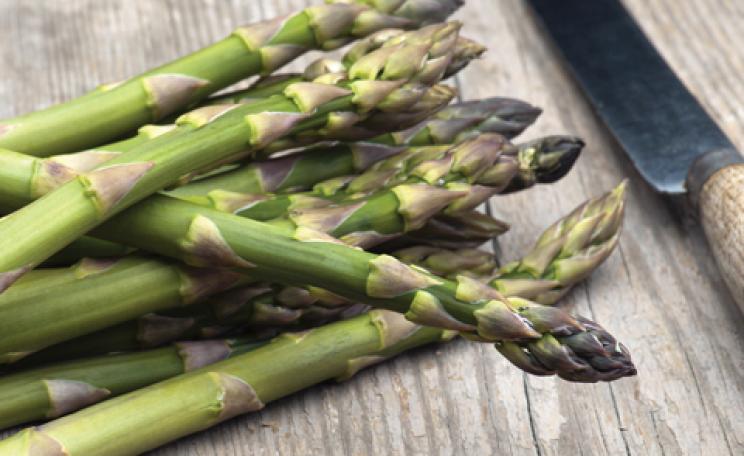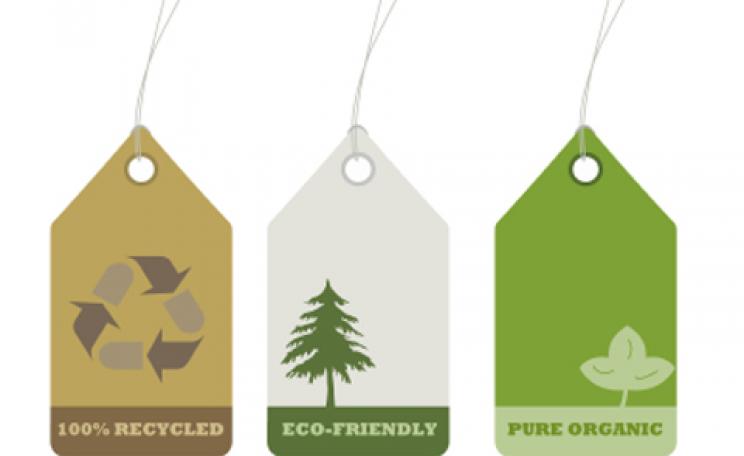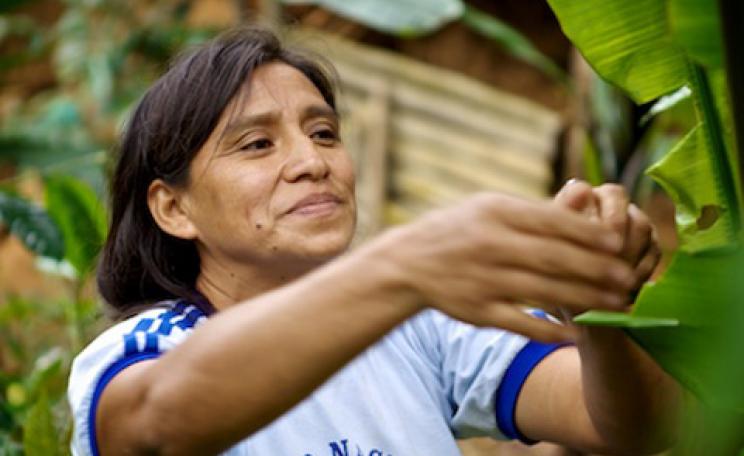For an organisation that puts the pleasures of taste on equal footing with concern for environmental and ethical issues, it is only natural that my interview with Slow Food begins with a glass of Prosecco. At L'Anima, a swish new Italian restaurant near London's Liverpool Street where we meet, I'm whisked into the bar area and chef and owner Francesco Mazzei approaches, gushing about Slow Food UK's new General Secretary, Catherine Gazzoli. Francesco's previous efforts to get involved with Slow Food UK were snubbed, he says, but barely two months after meeting Catherine, he's been appointed a Slow Food ambassador chef. His restaurant's simple, southern Italian dishes use seasonal British produce and epitomise the Slow Food mantra of ‘good, clean and fair' food.
What? Slow Food in the UK? In Italy, where Slow Food originated in 1986 as a protest against food's homogenisation and degradation by fast food culture, it occupies an important space. It's a household name for its published guides to Italian food and wine. It's a campaigning force to protect local food producers and the communities they sustain. It has enabled ‘good food' to be enshrined in regional health department guides and Ministry of Health programmes. In Britain, it's just considered decadent.
I'm reminded of this as the interview starts. We're in a private dining room closed off from the noise of the well-heeled diners, with wine racks lining the walls, and plates of ham, cheese and olives to nibble at. Good food, and the time and money believed necessary to enjoy it, is associated with the elite segment of British society. Then there's the British magpie instinct muddying the gastronomic waters by taking away the best foods from other cultures, so much so that foods of recognisably British origin have been lost in the melting pot that is this nation's cuisine.
That's one view. The alternate view is that Britain has a rich, strong food culture, running beneath the radar and under constant attack from supermarkets and ready-made meals. In this vein, Slow Food UK could be a focal point for efforts to safeguard cherished, but endangered, regional foods and food traditions. But while Slow Food UK's initial launch in 2006 attracted a small following, it hasn't yet fulfilled its potential to bring on a full-scale delicious revolution.
Thus it is reborn. Slow Food UK's recent rebirth is as practical as it is ideological. Practically speaking, its new headquarters, moved from hard-to-reach Ludlow into central London's Covent Garden early this year will help raise its public profile, and enable it to better reach out to the media, government and other food policy makers, ‘none of whom had heard of Slow Food,' says Catherine, a forthright American formerly with the United Nations.
Ideologically, Slow Food UK needs a strategy to make it appeal, ‘to the truck driver as much as to the landed gentry,' Catherine says, ‘I want to see the same thing that's happened in Italy happen here.'
That may take some work. The arcane language used to describe its structure is a first stumbling block. There are the ‘Convivia' - or the autonomous local groups, the ‘Presidia' - or the small-scale projects to help artisan food producers preserve traditional products and the ‘Ark' - a ‘make safe' list of endangered food plants and animals, all of which make it sound a little like an exotic private club. In the US, where Slow Food has a very strong foothold, they don't use the Italian terminology. ‘We have to make sure Slow Food fits into an Anglo-Saxon environment,' says Catherine.
But they have taken the very wise first step of enlisting a stellar cast of UK food greats as Trustees and supporters, including Craig Sams of Green & Black's chocolate and Peter and Juliet Kindersley of Sheepdrove Organic Farm, (all at the interview) as well as chef Prue Leith, and Kevin Kibbell, a veteran NGO consultant and fundraiser. This is symbolic not least because they are well known and well connected, but also because, collectively, they have long standing associations with the UK's major food campaigning organisations.
Craig Sams, vice chair of the Soil Association, was invited to give the keynote speech at the initial launch of Slow Food UK on the Isle of Skye. ‘I was encapsulating the synergies and harmonies between Slow Food and the Soil Association and some of the Slow Food people thought that the Soil Association was trying to take over. When you are a big successful NGO, it was threatening. Instead of throwing in their lot with the Soil Association and other groups like Sustain, they didn't. There have been more than one lost opportunities to do something with Slow Food UK on a national level,' he says.
Think global, eat local
The local Slow Food groups, of which there are about 50 in the UK, are, I am told, not just foodies talking to foodies, there is real meat to their meetings. There are discussions on peak oil and other ‘carbon-related' events, visits to local dairy farms and apple orchards, plans to screen important documentaries from the End of the Line, to Tracy Worcester's Pig Business and Deborah Garcia's the Future of Food. Juliet Kindersley, heavily involved in her local group says meetings consist of, ‘films and discussions - but always end with a meal.'
Slow Food believe the best way to stem the tide of junk food and save endangered local cuisines is through ‘taste education'. The local groups introduce new food to members and ‘taste workshops' present a behind the scenes look at how food is produced. The idea is that this leads to individuals supporting local food initiatives.
The Slow Food Dorset group, for example, with around 90 members, has helped protect and promote some of Southwest England's best: Portland sheep, a high-quality meat that is nonetheless classified by the Rare Breeds Survival Trust and artisan Somerset cheddar cheese. In Cornwall, the local group has supported Cornish Pilchards and the Fal oyster fishery, the only stock of native oysters fished entirely by man and wind power and now threatened with extinction.
Elsewhere, in the Midlands, there has been a campaign to save Three Counties Perry, made with the fermented juice of endangered perry pears, and produced and consumed almost exclusively in the three counties area of Herefordshire, Worcestershire and Gloucestershire. It's not suited to large- scale production, there is no marketing of it, yet it has a rich history. Other campaigns have supported foods from the highly-nutritious bere flour made from a distinct Scottish barley and used in traditional soft rolls of Orkney to traditionally grown Jersey Royal potatoes.
As Juliet Kindersley says, what's brilliant about Slow Food is that it's a home for the very small producer, whether or not they are organic. ‘There is almost a tyranny to organic certification,' she admits.
Slow is beautiful
Slow Food shares similar beginnings with the Soil Association, with its extensive network of local groups that from the 1950s up until the 1970s, Craig explains, would get together once a month and swap organic vegetables. ‘Gradually these declined as supermarkets grew,' he says.
Yet today, the Soil Association are the face of organic producers in the UK, visible in practically every supermarket across the country. Supporting organic principles is as easy as buying products with the Soil Association organic logo. How so with Slow Food? There is no Slow Food logo to put on foods or in shops, they are not a certifying body and have no plans to become one.
A big area of discussion is how Slow Food, home to the artisanal producer, can ever work with supermarkets.
‘We cannot ignore that 80 per cent of people shop in supermarkets' says Catherine. ‘We can't' Craig repeats. Peter Kindersley remarks on local food hero Caroline Cranbrook, ‘she makes a very good point that when you start in a small business, you want small orders. When you start with your chutneys and go to a supermarket - there is just no way they can actually deal with it'
Yet if there is enough consumer demand for something, you can bet supermarkets won't want to be left out in the cold. Craig says, ‘Supermarkets are coming down to the micro level, Waitrose are leading the charge. The question is whether we want supermarkets to capture all this activity. Why did the supermarkets go mad for organics in 1997-98? They studied consumer behaviour and learned that they were losing customers to box schemes. They had to get into organics to regain customers. If you look, though, box schemes now are bigger than ever. So it's not "one or the other" - it's kind of "both - and"'.
Slow Food UK, reborn, have just begun to tackle the challenges that lie ahead. Suffice to say that the clearest ways to support their aims are shopping at local, independent shops, being aware of the foods that are produced local to you, and...becoming a member. The group's survival, Catherine says, depends on upping membership, funds from which currently cover less than 10 per cent of overhead costs versus 40 per cent in the US.
She says, ‘Slow Food is a global movement and the UK is part of that. A lot of the British producers are really excited about being part of a global network. It's great for British tourism - Somerset cheeses and all these different presidia we have. I believe in the whole, big picture. The model of Slow Food is actually global north, global south. Part of the membership fees in the global north goes back to help projects in the global south... local groups in Rift Valley, Kenya or working with Guatamalan coffee pickers.'
At this point Francesco pops in to say farewell, and thank us for choosing his restaurant to meet. ‘I've worked at Michelin star restaurants, in the end I realised I don't want to do molecular cookery [a type of haute cuisine that has inspired Heston Blumenthal, amongst others]. If we go that way, in 20 years, we'll all be taking pills. I want to cook the way Mamma cooked - traditional, homemade Calabrian cooking. I want to say something with my food. I'm very spiritual about it'.
This Slow Food gathering is no exception, and time has come to eat. Serious discussion may be nourishment for the mind, but when it comes to the flesh nothing beats a good meal.
Slow Food Facts
• Slow Food now has over 100,000 members in 132 countries with national branches in Italy, UK, the US, Germany, Switzerland, France and Japan.
• The Ark of Taste project was launched in Turin in 1996 to catalogue, describe and draw public attention to food products from around the world that have real productive and commercial potential and are closely linked to specific communities and cultures - but are, alas, at risk of extinction. In the UK, Ark products include Lyth Valley Damsons, Morecambe Bay Shrimps, Formby Asparagus, Kentish Cobnuts, Colchester Native Oysters, Three Counties Perry and Cheshire Cheese.
Matilda Lee is the Ecologist's Consumer Affairs Editor
Slow Food UK www.slowfood.org.uk
London group www.slowfoodlondon.com
To join: £35 for an individual, £45 for a family and £20 for a youth annual membership.
Click here to hear Slow Food founder Carlo Petrini speak (through a translator) at the book launch of Slow Food Nation.
Click here to hear Zac Goldsmith speak at the book launch of Slow Food Nation







